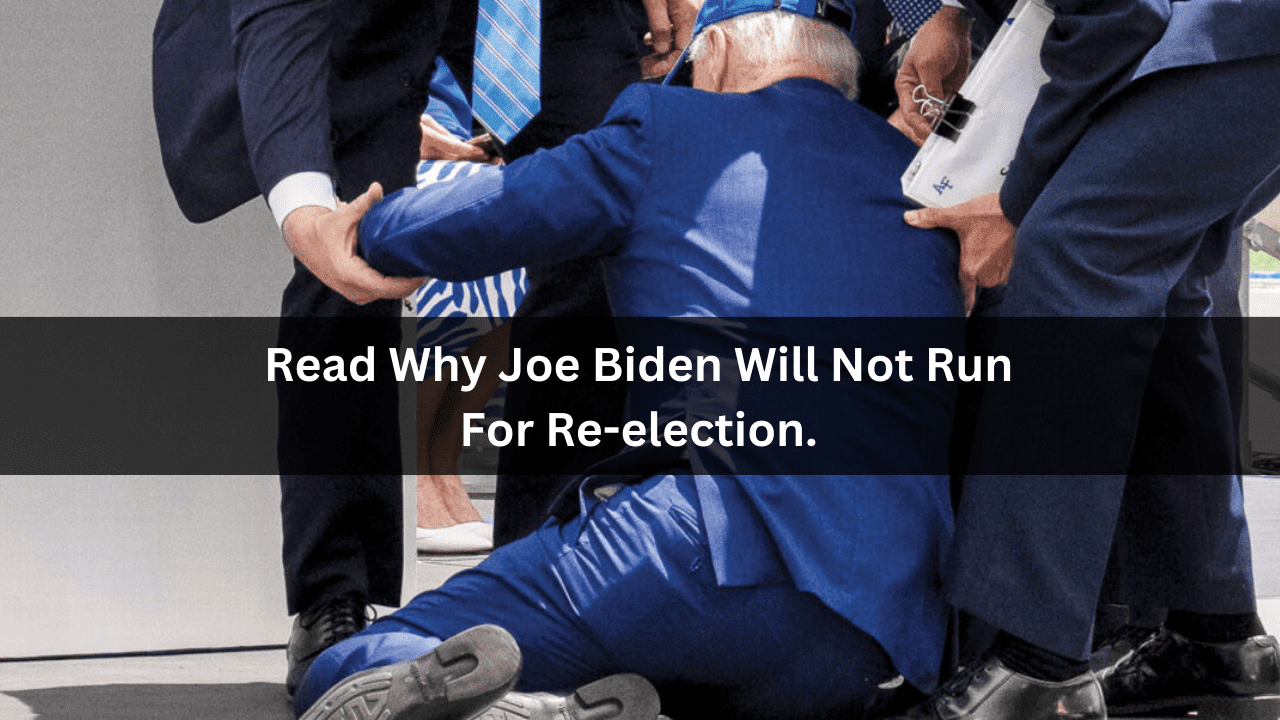Allan Lichtman is an American historian and professor of history who is well-known for developing a predictive model for determining the outcome of U.S. presidential elections. Lichtman’s system, known as “The Keys to the White House,” is based on a set of 13 criteria or “keys” that assess the political and economic climate leading up to an election. The model is designed to predict the winner of the popular vote and has been remarkably accurate.
The 13 keys are a set of true/false statements, and if six or more of them are false, the party in power (the party of the incumbent president) is predicted to lose the upcoming election. Here are the 7 keys that, if false, indicate Biden may lose his reelection campaign. And That’s why Biden’s chances of removing himself from contest are rising day by day.
1. Divide in Democrat Party
The Democratic Party is currently at a crossroads, with fractures emerging in the once-unified “Blue Wall,” highlighting internal divisions and sparking debates about the party’s future direction.
Meanwhile, President Biden’s approval ratings are on a downward trend, raising doubts about his prospects for a successful reelection bid.
President Biden’s popularity has steadily declined since taking office, influenced by factors such as inflation, disruptions in the supply chain, and challenges in foreign policy.
Concerns about his age and fitness for another term contribute to the uncertainty surrounding a potential 2024 run.
RFK Jr. has already announced his independent campaign, and Dean Phillips has declared his presidential bid, citing Biden’s age and incompetence. These moves create a negative perception of Biden among Democratic voters.
2. Third party Candidate
Robert F. Kennedy Jr.’s entry into the 2024 presidential race as an independent candidate has introduced a significant level of uncertainty into the Democratic Party’s plans.
Kennedy, the son of the legendary Democratic figure, capitalizes on his family’s legacy, charisma, and anti-establishment rhetoric to garner support from dissatisfied Democrats, independents, and even some Republicans.
His positions on environmentalism, vaccine skepticism, and social justice resonate with a diverse cross-section of the electorate, potentially diverting crucial votes away from President Biden, especially in swing states.
Polls indicate that Kennedy is polling at 24%. His appeal to progressive individuals discontented with Biden’s perceived centrism could deepen existing divisions within the Democratic Party, making it more challenging for them to unite behind a single candidate.
Additionally, his appeal to independents who are frustrated with the Two-Party System could further complicate the political landscape.
3. Weak long-term and Short-term economy
President Biden’s re-election hopes face a formidable foe: a wobbly American economy threatening both short-term gains and long-term stability.
Inflationary pressures linger, squeezing household budgets and eroding consumer confidence. Supply chain disruptions continue, hampering businesses and casting a pall over future growth.
Meanwhile, global uncertainties, from the war in middle east to rising interest rates, add a layer of anxiety to the economic picture.
This precarious terrain threatens Biden’s core message of economic recovery and stability. Voters stung by rising costs and job anxieties may be less receptive to promises of future prosperity.
The Republican Party, eager to capitalize on economic woes, will paint a bleak picture of Biden’s handling of the economy, potentially swaying crucial swing voters.
To counter this narrative, Biden will need to point to concrete strides made in job creation, infrastructure investment, and social safety nets.
Left-wing activists and Muslims in the United States are expressing dissatisfaction with the Biden administration’s response to the Gaza war.
In recent speeches, President Biden has faced heckling from people of the Islamic faith, with some vowing not to vote for him in the reelection.
This is a concerning development for him, especially considering that minorities play a massive role in swing states.
5. Scandal
The scandal surrounding the open border situation during the Biden administration has intensified as millions of people, according to some estimates, have entered the United States. Biden’s border policy is facing a disapproval rate of 70%, highlighting widespread discontent with the handling of immigration.
The recent rift with Texas, where the state is taking matters into its own hands to address border challenges, has further exacerbated the issue. Texas has garnered support from 25 states, reinforcing their efforts with National Guard deployment.
This situation poses a significant challenge to Joe Biden’s reelection bid, as it not only underscores the deep dissatisfaction with his administration’s border policies but also showcases a lack of coordination and control over a critical aspect of national security.
The escalating tensions and broad opposition to the open border approach could have lasting implications for Biden’s political standing and electoral prospects.
6. Foreign/Military Failure
The withdrawal of US troops from Afghanistan in 2021, particularly its chaotic execution, remains a significant political hurdle for President Biden. Critics, primarily Republicans, argue that the administration’s underestimation of the Taliban’s swift takeover and the ensuing humanitarian crisis constituted a grave mishandling of the situation. Images of desperate Afghans clinging to departing planes at Kabul airport became potent symbols of failure, casting a long shadow over Biden’s foreign policy credentials.
Further complicating matters is the ongoing war in Ukraine and the growing public unease about its financial implications. While many Americans support aiding Ukraine against Russian aggression, a vocal segment increasingly questions the long-term commitment of billions of taxpayer dollars, especially amidst domestic concerns like inflation and economic uncertainty.
These factors, coupled with Biden’s own age and declining approval ratings, create a challenging landscape for his potential re-election bid in 2024. Republicans are eager to capitalize on these vulnerabilities, painting Biden as weak on foreign policy and fiscally irresponsible.
7. Candidate charisma
A charismatic candidate is a candidate with an extraordinarily persuasive or dynamic personality that gives him or her very broad appeal. Biden’s lack of electrifying energy and oratory prowess compared to some predecessors has been a frequent critique. His gaffes and moments of apparent fatigue can fuel Republican narratives of diminishing mental acuity and unsuitability for a second term.

